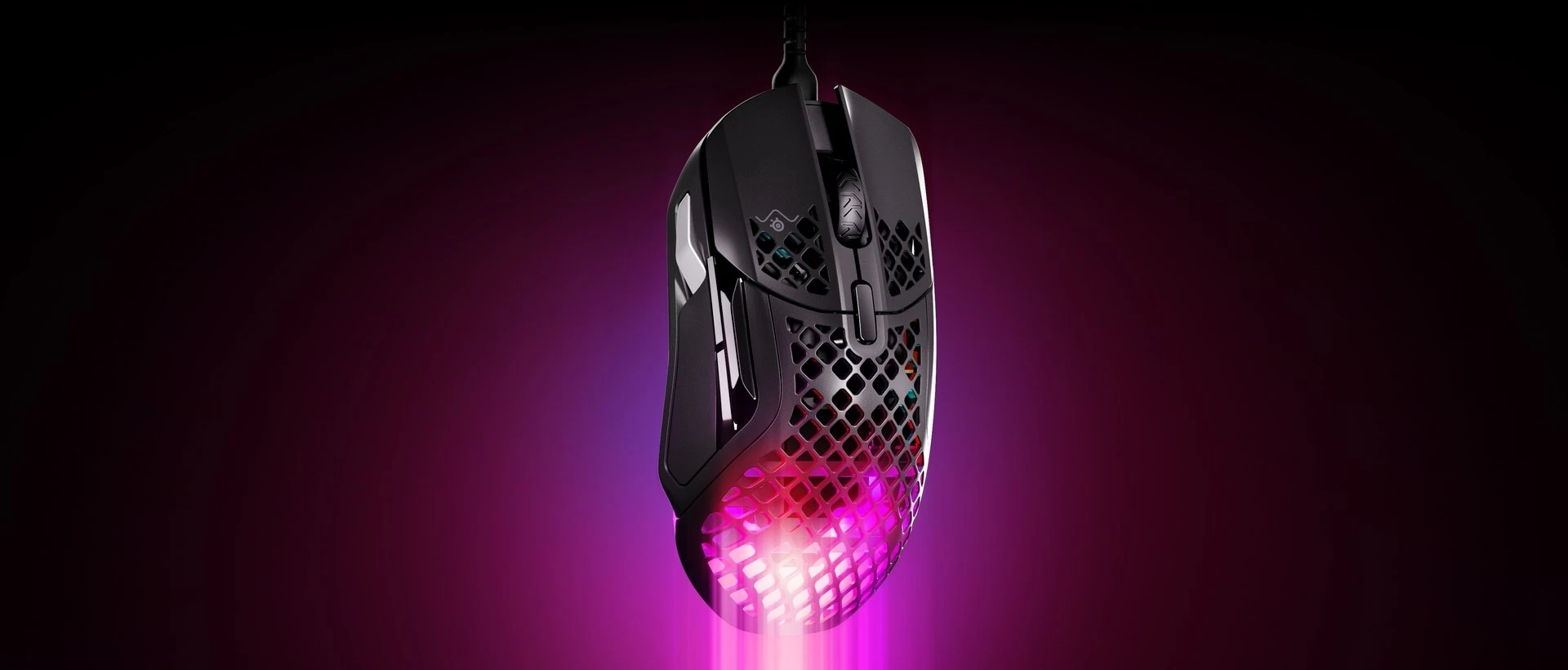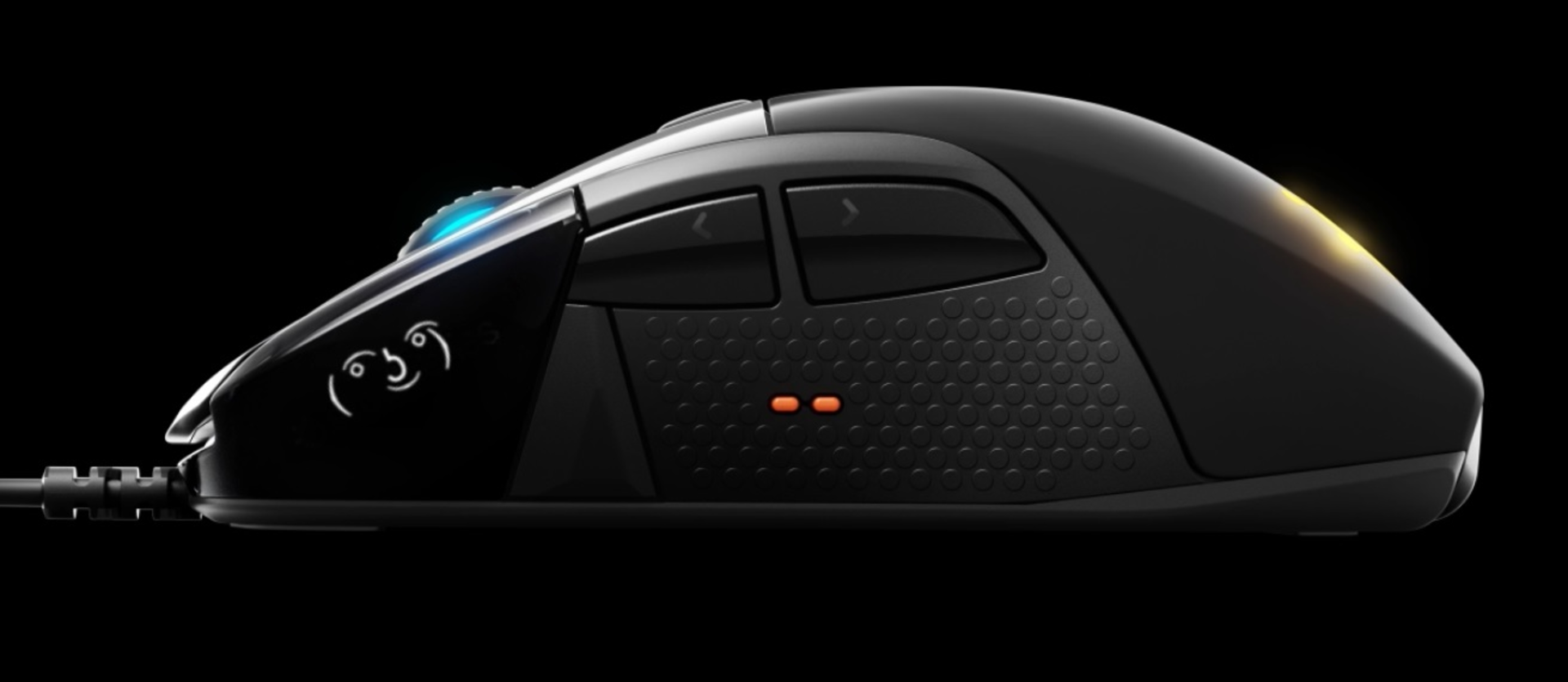
CPI vs DPI Mouse Meaning
Answers to your burning questions about sensitivity.

Unsure what mice makers are talking about when they say DPI or CPI? Here's the rundown of what those terms mean for you.
Looking to buy a new mouse? Thinking about upgrading your home office? You're probably wondering what all these terms splashed all over the mice's product pages mean. For instance, what does TrueMove Air precision mean? What are Golden Micro IP54 Switches? And, perhaps most importantly, what does "DPI" mean?
It's natural to want to learn more about the tech products you're using on a regular basis. We're here to answer all of your burning questions, whether you're a veteran tech connoisseur or you're just starting your peripheral journey for the first time. This time around, we're going to focus on a mouse's DPI and what that means for you as a user.
Are DPI and CPI the same?
CPI (counts per inch) and DPI (dots per inch) are terms used interchangeably to measure mouse sensitivity. Mouse manufacturers often use these terms interchangeably, though CPI is a more precise measurement than DPI. Both terms refer to how much a mouse cursor moves per inch of physical mouse movement.
Generic mice typically offer at least 400 CPI/DPI, while gaming models can exceed 1000, meeting the demands of professional players. The distinction between these terms might seem technical, but they both impact the accuracy of mouse movements and gaming preferences. Adjusting CPI/DPI settings can fine-tune mouse sensitivity according to personal preferences.
What does CPI vs DPI mean?
What does DPI mean?

If you've ever purchased a new mouse and realized the mouse cursor is moving too slowly or too quickly for your taste, you've likely wondered what causes these discrepancies. It's all in the simple signal that's transmitted to your computer, then translated into movements on-screen. This signal varies from mouse to mouse, and all depends on your mouse model's "dots per inch," or DPI.
DPI is an important measurement that can tell you exactly how sensitive the mouse you're using is. It's easy to remember what to look for. The higher the DPI on the mouse, the more sensitive it will be. The "dots" in DPI refer to the pixels that your mouse cursor moves through every time you make a movement in real life.
For instance, a mouse set at 800 DPI will move a cursor 800 pixels per inch that your mouse travels across the screen. The higher your DPI, the quicker your cursor can move for every real-life inch of screen real estate.
While each mouse has a set DPI count, many models let you change the settings, either up or down. Generally speaking, the more expensive the mouse that you purchase, the higher DPI it will have. It will likely also offer more customization options for you to adjust the DPI to your liking. That means if you like a quick zip back and forth across your screen, it's possible, or you can opt for a graceful glide back and forth instead. It will all depend on what you plan on using your mouse for.
What does CPI mean?
At SteelSeries, you'll notice that we use the term CPI. When it comes to gaming mice, most manufacturers will use the terms DPI and CPI interchangeably.
CPI stands for "counts per inch", which typically refers to a mouse's sensitivity. The higher the mouse's CPI, the more sensitive it is when you move it around the screen. Like the amount of pixels a mouse travels through with the term DPI, a better way to envision CPI is a number of spaces a mouse sensor reports to your computer as it moves. Technically, it's the number of pixels that can fit into one inch on your mouse sensor's surface.
A lower number means the mouse will seemingly move more slowly, which means you need to physically move your mouse further to move the cursor from one side of the screen to another. Conversely, a higher number means you'll have to move less.
Typically speaking, however, you can draw many of the same conclusions from CPI as you can DPI in terms of what you need to know about the concept as a consumer.
Which is better DPI vs CPI?
Neither DPI nor CPI is objectively better, as they essentially refer to the same concept: mouse sensitivity. Both terms represent how much the cursor moves on the screen with physical mouse movement. The choice between them is mainly about terminology preference, as the technical aspect remains consistent. The key lies in adjusting these settings to match your comfort and usage, as they affect cursor accuracy and overall experience. Modern gaming mice offer customizable DPI/CPI options, allowing users to tailor sensitivity to their needs.
What is a good DPI for a mouse?

It's important to keep your mouse's DPI in mind for a variety of reasons. You'll want to decide what your primary use case is for the mouse that you're using before settling on a purchase, which means matching the DPI to what you plan to use the mouse for. Most PC users can get by just fine at or below 800 DPI. This is an average DPI that's fine to shoot for if you're just going to be completing mundane computer tasks.
However, if you plan to do a lot of gaming, you're going to want to aim for a higher DPI. That means you'll be able to zip across the screen and move through more real estate quickly, which can give you a leg up on the competition. If you need to move your cursor around quickly, a faster setting than 800 is optimal. Higher-end gaming mice often have up to 5,000 DPI, but you can customize the number to your liking depending on what works best for you. Of course, you must also factor in your screen size and its resolution. If you have a screen with a higher resolution, that means more pixels that you need to traverse. In turn, you'll want a higher DPI.
There are still situations where you might want a mouse with a lower DPI, or a mouse that you can opt for this setting temporarily with. If you're doing graphic work, for instance, and need to be as precise as possible with your mouse movements, choosing a lower DPI can help you keep the mouse stationary so you make fewer mistakes. You can also adjust the DPI for situations where aiming is important as well, such as when you're camping and need to pick off enemies with a sniper rifle.
Is higher mouse CPI better?
Actually, not really. Even though some mice offer really high numbers, most people end up gaming in something like a 400-1,200 range. You simply don't need such a high range for your movement.
What kind of settings do pros use? They also won't use very high settings. If you take a look at what CS:GO pros use, you'll rarely see numbers even above 800 or so, with very occasional 1,200s. 500-600 is actually very common.
How to change your mouse's DPI
Many mice come with switches that you can press to swap between different DPI levels on the fly. This isn't a change that occurs with the mouse as a piece of hardware, but within your computer instead. When you adjust the DPI via switches, you don't have to escape the game you're playing or stop what you're doing. You should simply get a burst of speed or see your cursor slow down as you work to adjust your sensitivity.
When it comes to SteelSeries gear, it's all very easy to manage and adjust with SteelSeries Engine. You can adjust it by levels (which is actually what the middle button on the mice changes) or you can even write a specific number for that perfect granularity.

Now that you have a better idea of what “DPI” means and what to look for in that department when buying a mouse, it’s time to choose a great one. Why not peruse our selection of gaming mice and take one home today?
FAQ
Is 3200 DPI good for gaming?
A DPI setting of 3200 can be suitable for gaming, depending on personal preference and playstyle. DPI refers to mouse sensitivity; higher settings mean the cursor moves faster. Competitive players often prefer higher DPI for swift cursor movement, particularly in fast-paced games.
However, sensitivity varies between players. Modern gaming mice offer customizable DPI settings, catering to different preferences. While 3200 DPI suits many, optimal performance results from finding a balance between DPI and in-game sensitivity. Testing various settings, using gaming mice with customizable options, and considering factors like precision and control can help determine the ideal DPI.
Is 400 DPI the same as 400 CPI?
Yes, 400 DPI and 400 CPI essentially refer to the same thing. Both terms indicate mouse sensitivity—how far the cursor moves on-screen with physical movement. Manufacturers often interchange these terms.
Regardless of the term used, adjusting settings to achieve preferred cursor movement and sensitivity is vital for optimal performance based on personal preference and gaming needs. Higher CPI settings can offer finer control, especially for professional gamers. However, the difference between the two terms is minimal in practical use.
What happens when you press the CPI button on a mouse?
When you press the CPI button on a mouse, you adjust its sensitivity settings. CPI or DPI determines how far the cursor moves with physical movement. Changing these settings through the CPI button alters the cursor's speed on-screen. Modern gaming mice often feature this button, allowing you to switch between different sensitivity levels during gameplay.
This customization caters to individual preferences and gaming requirements. Modifying the CPI/DPI lets you fine-tune your mouse's response to achieve optimal accuracy, control, and comfort, enhancing your overall gaming experience.
Is CPI good for gaming?
Absolutely, CPI plays a crucial role in gaming. It directly impacts game sensitivity, allowing players to tailor their experience through game mouse sensitivity settings. Higher CPI is often associated with advanced gamers seeking precise control and rapid responses in the gaming mouse industry. While some gaming mouse myths circulate, a high-CPI mouse is a staple for many. These high-end gaming mice offer customizable CPI settings, giving players the ideal gaming mouse to match their preferences. For advanced gamers, a high-CPI mouse is a valuable tool for achieving the perfect balance of accuracy and speed in their gameplay.
How do I know my mouse CPI?
For a basic level assessment of your mouse performance, follow these steps:
Step 1: Visit the manufacturer's website and locate the model number of your modern mouse.
Step 2: On the product page, navigate to the section where comprehensive information about the mouse's specifications is stored.
By adhering to this approach, you can effectively conduct a mouse DPI test and obtain precise CPI/DPI values. Relying on the manufacturer's official specifications ensures an accurate evaluation of your modern mouse's sensitivity settings for optimal mouse performance.
Also check this out:

Brittany Vincent has been covering video games and tech for 14 years for a variety of publications. When she's not writing or gaming, she's looking for the next great visual novel (like Saya no Uta.)